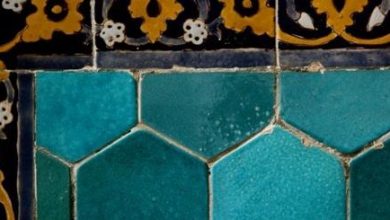WHO ARE YOUR FRIENDS – PART 1

Companionship is a basic requirement for human beings, and can arise from family ties, social connections or marriage. Allah in His ultimate wisdom, created human beings to be social creatures with the inborn desire to seek and live in the company of others. Very rarely do people prefer to remain in social isolation. So deep rooted is our need for companionship that when someone commits a criminal act, he is isolated from society as a punishment.
Without companionship, our lives would be intensely lonely. Ali ibn Abi Talib (RA) said to his son, Al Hassan (RA): “My son, do you know who is the stranger? It is the one who does not have a companionship who loves him.”
The impact of a companionship is exceedingly powerful. The human being’s personality is both contagious and susceptible. We influence each other in many ways, spreading and also absorbing the habits, thoughts and mannerisms of those we interact with. When we accompany people, we tend to incorporate their speech pattern, clothing style, way of thinking and even their beliefs and convictions, into our lives. People we are close to leave imprints in our lives, and ours on theirs.
The following hadith provides a good illustration on the effect that others have on us:
“The similitude of good company and that of bad company is that of the owner of musk and of the one blowing the bellows. The owner of musk would either offer you some free of charge, or you would buy it from him, or you smell its pleasant fragrance; and as for the one who blows the bellows (i.e., the blacksmith), he either burns your clothes or you smell a repugnant smell.” [Bukhari & Muslim].
People are infectious and can leave a residue on our personalities, so we have to be careful when seeking companionship, for this can influence and shape our lives for better or for worse.
The Qur’an has provided us a simple constitution on those we are to spend our time with:
“O you who believe! Be afraid of Allah, and be with those who are true (in words and deeds).” (Surat Tawbah 9:119)
Another often-repeated advice of Allah SWT is for us to seek those who possess knowledge, piety and wisdom. This is why Allah SWT sent His message to us through fellow human beings: Messengers and Prophets. They were the source of guidance for their communities, and transmitted the knowledge of Islam in a personalized way, through direct interaction with their people.
This tradition of seeking knowledge and spending time with the learned ones continues until today. There is a vast difference between studying online and seeking practical knowledge directly from a person. In many disciplines, obtaining a degree is insufficient without hands-on experience learnt from one’s mentor. Certain types of expertise, understanding and comprehension of any knowledge can only be passed from person to person. Human beings are tools and bridges to pass knowledge, skills and even faith.
Companionship can be both beautiful and dangerous, depending on whom we spend our time with and how they affect us. We are who we are today because of the knowledge and skills passed by a companion, friend, teacher, neighbour, family or loved one. Conversely, think of all the bad decisions and wrong turns we may have made due to peer pressure and wrong companionship.
What is a Good Companion?
In the Arabic tradition, a friend or companion was called a “sadeeq”, being the one who is truthful to you. The enemy is “‘adu” because he harms you.
Our fast paced style of life has led us to become deeply individualistic. Many lack the foresight and purpose of life, and end up making dramatic and problematic decisions which leave significant, and sometimes irreversible impact. The necessity for good companionship to guide us through life is often ignored, and we prefer to either muddle through on our own or to seek help from those who do not have the ability, inclination or wisdom to guide us.
One of the most misunderstood concepts of a good friend is one who accepts you unconditionally, regardless of your actions or decisions. The contemporary idea of friendship seems to be one of unquestioning acceptance and support. Under the guise of respecting one’s choices, friendship nowadays entails letting friends hurtle towards self destruction, but being there for them after they have fallen and need to deal with the consequences of their actions. Friendship now prioritizes diplomacy rather than honesty and responsibility.
A genuine companion will pull you back from harm, and will save you from yourself if need arises. He will not be an idle spectator to watch you derail in life, but will instead try to rescue from going on the wrong track. He will counsel you towards making the right choices in life, even if these may not be the choices that you like. A true companion, in keeping with the spirit of “sadeeq”, will be honest and forthright with you for your own benefit in this world and in the hereafter.
Of the effects of good companionship, we are advised that: “The more you have a good companion, the more your goodness will increase, and your life will bloom.”
One of the early Muslims advised: “Get the peaceful companion: the one who decorates your life in ease and protects your life in hardship.” This refers to a companion who enriches your life with knowledge, wisdom, support and understanding.
Others used to say: “Get a solid companionship, and don’t get a hollow companionship.” They presented an example of the person who can lean against a solid wall with complete trust, whereas a hollow wall, established on superficiality, will collapse and take you down with it.
Finding the Right Companion
Rasulullah SAW said that the soul is like a soldier, united to one who is similar. Our soul would instinctively gravitate towards those alike in understanding, deen and behaviour. If our soul is alive, which means that it is in constant remembrance of Allah, we will be drawn to like-minded companions.
If our soul is dead, Allah will make us seek those who are also spiritually dead to accompany us in this life and the next. That is why some people, even when meeting one possessing all the characteristics of a good companion, will find his company unbearable.
If our faith is frail, we become blinded and misguided, and this blindness makes the soul unclean, weak and compromises our judgment, including the crucial one of companionship. We may even pay the price for such bad decisions in the hereafter, if these companions drag us to jahannam with them.
Human beings are never constant. We all travel different paths at different paces, and our values fluctuate from time to time. This is why it is a good practice to constantly evaluate who we spend our time with, even if we have known a person for decades. As we change, our companions change as well, to match our current priorities and understanding in life.
No matter what stage you are in life, the following advice from the early Muslims holds true: “Find the peaceful companion: the one who decorates your life in ease and protects your life in hardship.”
Those seeking happiness in this world and the next would actively seek companions to achieve that goal. The early people appreciated the gravity of this topic and used to go through great lengths to spend time with the people who can benefit them.
Today, our assessment of others tends to be skin deep, and we choose people according to their popularity, influence, looks, wealth and beauty. We are all trapped in the age of instant gratification and many of us seek friends who can maximise our enjoyment of the moment. Being seen with the right people wearing the right clothes and going to the right places overrides all else. We disregard their knowledge, wisdom, character and manner. Later on in life, when the implications of such ill-founded and vacuous companionships are felt, it is very difficult to unravel amount of damage that this companion has done.
This does not just refer to the obvious examples of those who lead you towards bad habits. There are others, for example, whose behaviour is so toxic that their venom seeps into your own system. There are others who are negative and constantly depressed, and their habits rub off on you. The most dangerous category of all are the ones without principles, value or purpose, who make you equally lost in life, and causes you to forget Allah, your dignity and your purpose of living.
Apply this to marriage. When the spouse has been selected based on superficial criteria, the marriage is ill-fated. The children will be corrupted by the environment of the parents’ creation. The repercussions of a decision made according to desire, lack of knowledge, wisdom and vision of the future will impact the next generation.




